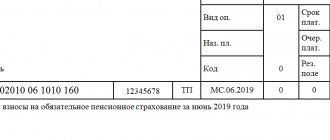Due to financial difficulties, not every person can purchase their own home. The country's legislation protects the interests of different segments of the population. That is why Russians, once in their lives, have the right to privatize municipal housing, which they rent under a rental agreement. In accordance with the norms of the Constitution and other legal documents, the disagreement of one family member does not allow the transfer of ownership of the apartment. In order not to cause inconvenience to other residents, such citizens must formalize a refusal of privatization.
What does refusal mean?
Refusal of privatization involves transferring one's rights to property to other family members. The share of the person who refused will be distributed evenly between them. The refusal is documented and certified by a notary.
If the marriage with the homeowner breaks up, then, in accordance with the Housing Code, the right to use and own the living space for other family members is not retained. If an agreement has been concluded between the owner of the property and his family members, then the right of use is determined in accordance with it. The only exceptions are minor children, who can live in the parent’s living space even in the event of divorce (Family Code of the Russian Federation).
It is worth noting that Article 19 of Federal Law No. 189 protects the rights of family members living in housing at the time of privatization, but who refused in favor of other persons. They have the right to use the apartment for an indefinite period, even after divorce. The Supreme Court also adheres to this position.
Privatization is not possible if:
- There is no information about registration since 1991. Such persons may have already participated in privatization.
- The housing has undergone illegal redevelopment. The possibility of registering it as property occurs only when it is legitimized.
- Not all residents agree to the procedure, and they have not formalized a refusal to privatize the apartment;
- The housing is not municipal. In accordance with the Federal Law, only municipal facilities are subject to privatization.
- The property is recognized as unsafe and threatens the life and health of those living in it.
Is the right of residence permanent?
Under current law, a tenant may lose their right to occupancy. For example, if a citizen uses the living space of a relative with whom he has lost family ties. This applies to ex-spouses.
This is important to know: The deadline for apartment privatization has been extended until 2021
For example, if a wife divorces her husband, and at the same time she is the sole owner of the property, he must leave the premises. When he does not do this voluntarily, the spouse has the right to go to court.
In addition, you can evict a tenant from a municipal apartment who has not shown interest in the property for a long time. Eviction takes place in court, where all circumstances will be considered.
However, these rules apply only indirectly to the situation under consideration. Regulatory legal acts establish that a person who refuses privatization has the right to lifelong residence in an apartment.
This interpretation should be taken literally. In other words, a tenant who refuses privatization can use the apartment until he dies.
It is important to understand that the right of lifelong residence is not inherited. If the parents lived in the apartment on the basis of an indefinite right of use, the children will not be able to use it.
Dear readers! We cover standard methods for solving legal problems, but your case may be unique. We will help you find a solution to your problem for free
— simply call our legal consultant at:
It's fast and free ! You can also quickly get an answer through the consultant form on the website.
Until a person is deregistered, no one can evict him. This point significantly complicates the process of selling an apartment. Buyers rarely agree to purchase real estate with such an encumbrance, since after the transfer of ownership the “eternal tenant” will not lose the right of lifelong residence.
Refusal from privatization: how to register
To formalize the refusal, you must contact a notary office. To fill out the application form (), you will need a passport and documents confirming residence at this address.
The official document must contain the following information:
- information about the person refusing privatization: standard information;
- rejection reason;
- address of the property that is subject to privatization;
- full details of the representative, if the applicant is a trustee or guardian of an individual. In this case, the court decision to establish guardianship is attached to the refusal.
Features of the procedure
- If refused, the applicant’s share may be transferred either to the common ownership of all residents or to one of them, subject to the consent of the other residents.
- Minor children have the right to become full owners on an equal basis with other family members. Their legal representatives can refuse privatization on their behalf, but subject to the consent of the guardianship and trusteeship authorities.
- Guardianship and trusteeship authorities may approve the waiver of property rights of a minor if he lives elsewhere. However, documentation of his refusal is mandatory.
- Privatization is impossible if at least one side is categorically against it.
- Refusal to privatize an apartment in favor of parents contains the same details. The only peculiarity is the mandatory receipt of permission from the guardianship and trusteeship authorities.
Why do they not like those who refuse privatization?
Let us remember that privatization means receiving free ownership of the housing where you live from the state. Who is a “privatization refuser”?
Everyone probably knows what privatization is Let us remember that privatization means receiving free ownership of the housing where you live from the state. But there is also such a thing as “privatization refuser.”
Who is a privatization refuser?
all persons permanently registered at the address of the property at the time of registration of the transaction participate in privatization
You can understand who was registered at that moment using an archival extract from the house register. How and what to watch in it can be read here .
But the registered person may waive his right to participate in privatization. If he refused, then he is a refuser of privatization .
So, if at the time of privatization there were more people registered in the apartment than indicated in the privatization agreement, this could be a problem.
So why don’t they like those who refuse privatization?
It seems that what’s wrong, well, the person refused privatization. You never know what reasons he had.
It's like that. And even according to the Civil Code (Article 292), the sale of residential premises provides grounds for termination of the right to use them by family members of the previous owner. True, unless otherwise provided by law. But the law establishes something else. Here, Article 19 of the Federal Law “On the Enactment of the Housing Code of the Russian Federation” states that this paragraph does not apply to persons who had the same rights to privatization as the one who ultimately privatized the housing.
And it turns out that people who refused to participate in privatization have the right to live in an apartment for life, regardless of the change of owner. Even if they later explicitly renounced their right again. Such a person may change his mind and then present his legal rights to live in YOUR apartment. And you, as the new owner, will have to prove in court that he no longer has rights.
This is the strange right a person who refuses privatization has, guaranteed to him by Russian legislation.
That is why banks that give loans secured by such housing, and realtors who select housing for their clients, do not like those who refuse privatization.
This is important to know: Who has the right to participate in the privatization of an apartment
What to do if a privatization refuser is still present?
Let's consider several options that can protect you to a certain extent when purchasing real estate with a privatization refusal.
- If a refusenik left the apartment a long time ago, did not take any part in the maintenance of the apartment, did not pay utility bills, we can say that he, in principle, lost his rights to use this apartment. Even if he makes some claims later, you can win such a case through the court. In September 2014, a review of the judicial practice of the Supreme Court of the Russian Federation was published, which to some extent turned the judicial vision of this problem upside down and made it possible to deprive such missing “refuseniks” of the right of lifelong residence.
True, there is a nuance here - the refusenik must be voluntarily discharged from the apartment. If at the time of privatization he was, for example, in prison or doing military service, and the apartment was privatized without him, it will be difficult to prove the voluntary nature of his absence. And you may definitely have problems.
- At the time of the transaction, the objector owns another home. In this case, the courts are also unlikely to accommodate him, recognizing the transaction for the purchase of housing by the new owner as invalid. But it’s better to play it safe and take yourself copies of documents confirming the existence of such property. This will prove your prudence in the transaction. And the courts “love” prudent and conscientious purchasers.
- In any case, it is worth taking from the refusenik a notarized statement that he does not claim the right to use this property and the right of ownership of it, and also does not intend to claim any rights in the future. Even if he no longer lives in this property. And, if the refusenik is still registered in the apartment, it is advisable to include in the notarial application a clause that he undertakes to leave the given living space within a certain period of time.
Be sure to do your own due diligence before purchasing a residential property.
Ask the home seller for an archival extract from the house register and see for yourself if there are any “extra” people there. If there are, find out where they are now. Request additional documents or assurances.
But we remind you once again that even the presence of notarial statements or the refusal of registration in this housing does not deprive the refusenik of the right to use this housing under the law and does not fully protect you from a potential lawsuit on his part. And despite the presence of certain positive judicial practice and comments of the Supreme Court on this matter, each court case is individual and its outcome depends on the individual judge.
Refusal of a minor child
In accordance with the law, housing can be transferred into ownership with the consent of all residents or with a written refusal from them. Minor children have the right to participate in the privatization of real estate. As was said, their refusal is possible only with the consent of the guardianship and trusteeship authorities. As practice shows, authorized bodies very rarely undertake this procedure. To obtain permission, legal representatives will need to provide reasons confirming the appropriateness of the refusal procedure.
These include:
- Availability of other housing, the usable area of which is not less than the footage of the privatized property.
- The object subject to privatization is in disrepair or is considered dilapidated.
- The housing does not comply with sanitary and technical standards and fire safety.
- The premises had an illegal layout that poses a threat to habitation.
The authorized bodies have the right to refuse to exclude the applicant from the privatization of housing if they consider that his rights are being violated. Thus, refusal to privatize a minor child is possible only if he creates living conditions that are no different from the previous ones.
Result of failure
If a person, by giving up his share, pursues the goal of improving the situation of a particular resident, then this scheme is not effective. The law states that the refuser's share is distributed evenly among other family members. Refusal in favor of a specific person is possible only with the consent of other parties involved in the privatization of the object.
The person who wrote the refusal does not lose the right to use the property. They can be registered on the living space or live indefinitely. He cannot be evicted even by a court decision. If the property is sold by the owners, the right to use it remains with the objector. The new owner may file a lawsuit to evict previously registered persons.
You can privatize housing once in a lifetime (Article 11 of the Federal Law “On Privatization”). Refusal implies the participation of an individual in the privatization procedure of another object, possibly on more favorable terms. In addition, this step opens up the possibility of improving living conditions through participation in government programs. The applicant can receive an installment plan for the purchase of residential properties, a government subsidy or a mortgage loan at a minimum rate.
Refusal of privatization, the consequences of which do not infringe on the interests of the applicant, may bring additional benefits in the future. It is worth noting that the free privatization of residential properties has been extended until 2015, so refuseniks have very little time to benefit from an alternative solution.
The refusal can be annulled in court or through a notary. This procedure is very complicated, since the applicant made the decision independently. The judicial authorities will be on his side if he proves that he was misled or had limited legal capacity at the time of drawing up the document. Thus, refusal of privatization is a right, not an obligation of the tenant.
Consequences of the decision
Many people are interested in what rights remain with a person who refuses privatization. This is especially true for the right to use residential premises. The consequences of refusing privatization are:
- Reservation of the right to use living space. A person can live in an apartment or house even if the property is sold.
- A person who loses ownership also loses the right to vote when real estate is sold. A person cannot even count on receiving part of the funds from the transaction.
- Possibility to privatize real estate later.
So, a person who has lost his privatized share in an apartment retains the opportunity to live in it. And even moreover, he cannot be evicted by force if the property has new owners (Federal Law “On the privatization of housing stock in the Russian Federation”). A person can use his lost chance for privatization at any time, but only as long as he has the right to use the property indefinitely.
This is important to know: The owner of non-residential premises bears the burden of maintenance
But it is impossible to refuse privatization after the procedure has been carried out. If the owner wants to lose his rights to a certain type of real estate, he can do this through sale or donation. But there is no such thing as “deprivatization”.





